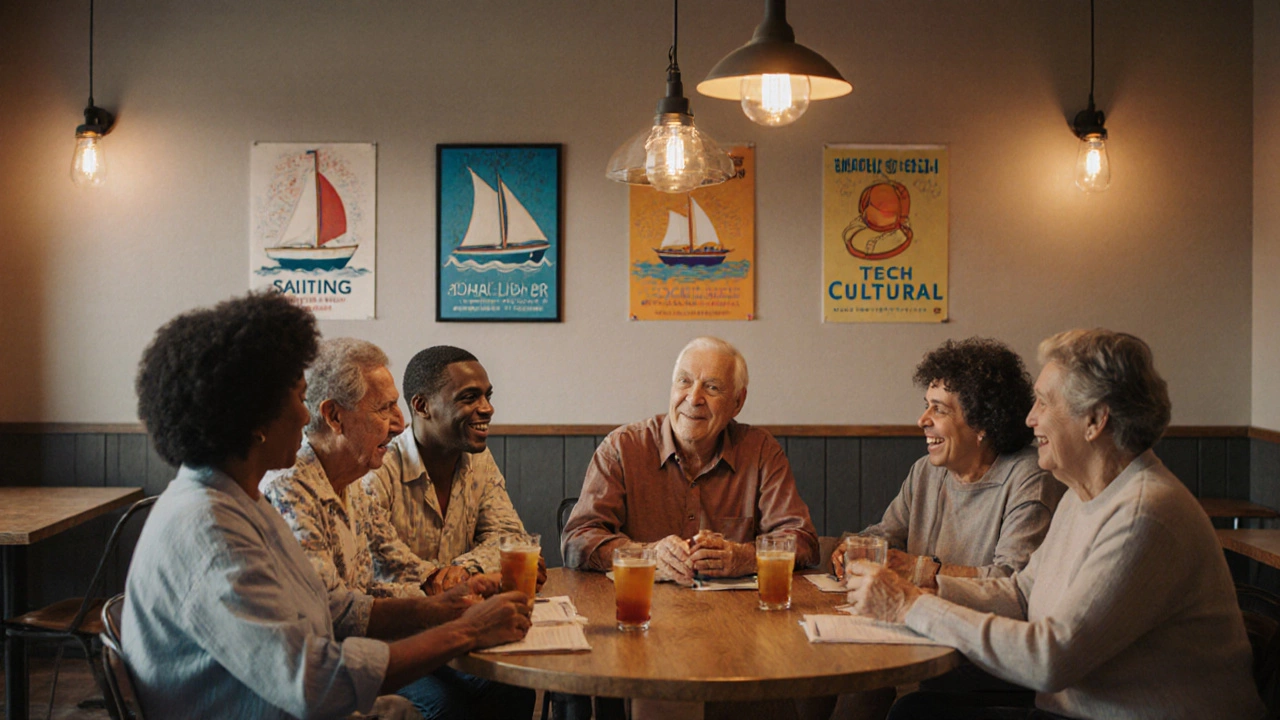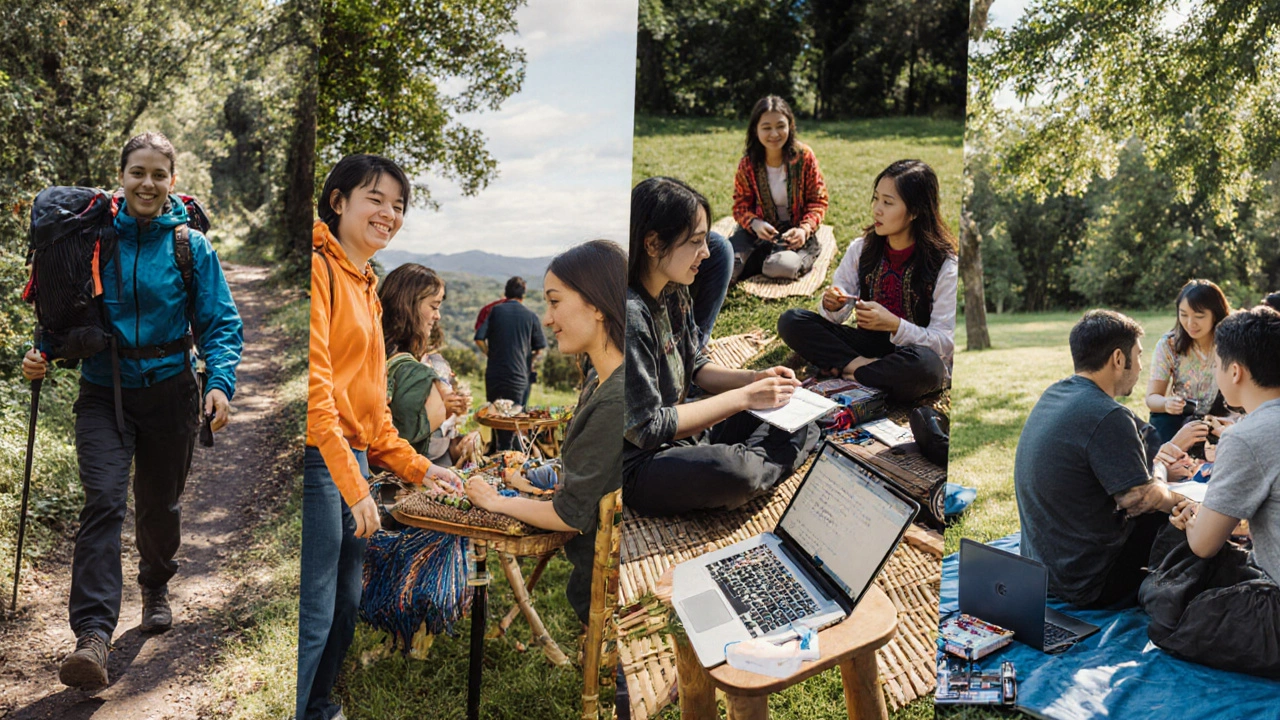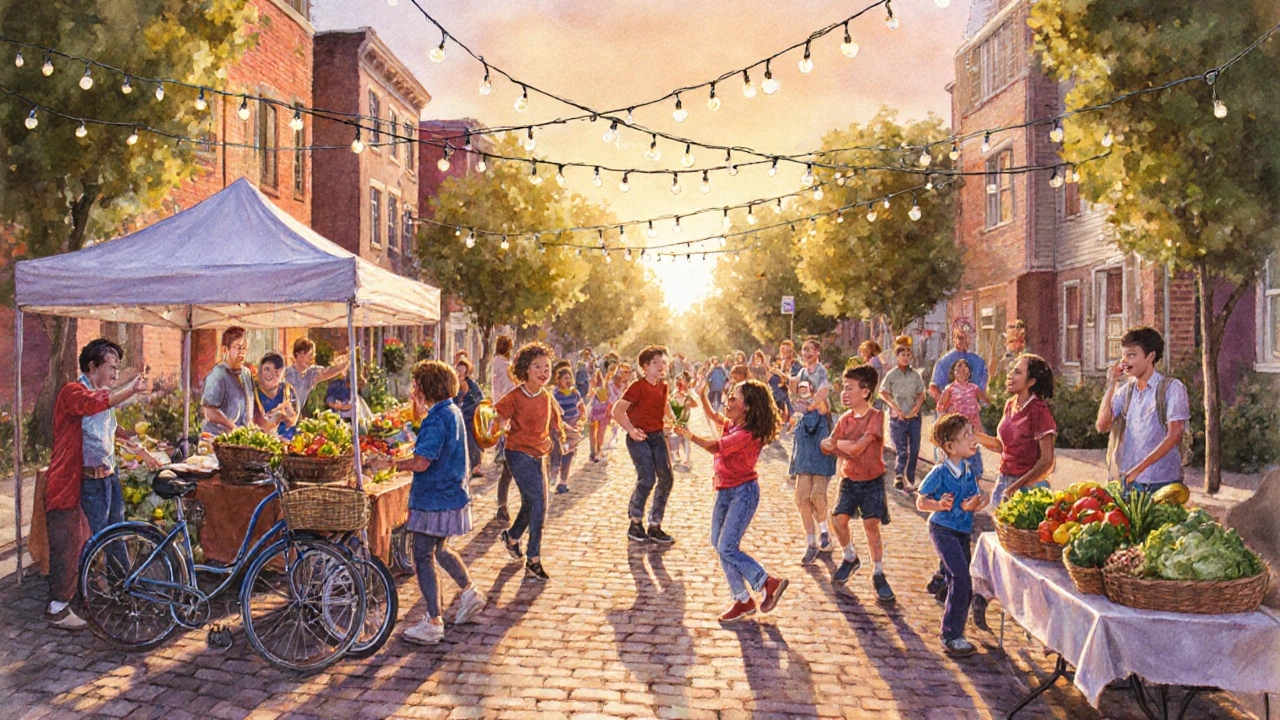Social clubs bring people together with shared interests, creating a sense of community and friendship. From book clubs to hobby groups, these clubs are as varied as the people who form them. Discovering what brings a club its charm, this article provides insight into the most common types around. Whether looking to join for personal growth or just for fun, there's a wide world of social communities waiting to be explored. Learn about them and how they might fit into your life.

- Created by: Lydia Carmichael
- Completed on: 17 Oct 2025
- Categories: Community Support
Club Finder Quiz
Find Your Perfect Social Club
Answer a few questions to discover which type of social club would best match your goals, interests, and lifestyle.
What's your primary motivation for joining a club?
How many hours per week can you commit?
What type of activities interest you?
This quiz helps identify clubs that match your goals based on the article's research about social club benefits and motivations.
Did you ever wonder why a group of strangers can spend evenings together, sharing jokes, learning new tricks, or planning the next charity run? The answer lies in a simple yet powerful human habit: joining a social clubs. Across Wellington, Auckland, and even small towns, people flock to these gatherings for reasons that go far beyond a hobby.
Social clubs are organized groups where members meet regularly to pursue shared interests, build relationships, and often contribute to the wider community. They can be as formal as a sailing association or as casual as a neighborhood book circle. Regardless of the format, the core idea stays the same: people gather because they want to belong.Human drives that pull us toward a club
Scientists call the need for connection the "belonging instinct." When we feel part of a group, our brain releases oxytocin, the same chemical that strengthens bonds between parents and infants. Networking the act of forming professional or social contacts that can provide opportunities, advice, or support is one obvious outcome, but the instinct also fuels more subtle cravings: a sense of identity, shared purpose, and emotional safety.
Emotional payoff: mental health and wellbeing
Frequent interaction with club members has been linked to lower rates of depression and anxiety. Mental health a state of emotional and psychological well‑being that enables individuals to cope with the stresses of daily life improves when we have people to laugh with, to vent to, and to celebrate milestones alongside. A Wellington hiking club reported that 82% of its members felt "more resilient" after six months of weekly walks.
Skill development and personal growth
Many clubs are built around learning. Whether it’s a photography workshop, a coding meetup, or a traditional Maori weaving circle, Skill development the process of acquiring new abilities, knowledge, or expertise through practice and instruction happens organically. Members exchange tips, run mini‑projects, and often leave with a portfolio piece or a new certification.
Cultural exchange and broader perspectives
When a Japanese language club meets in a Christchurch café, participants don’t just practice grammar-they get a glimpse into a different worldview. Cultural exchange the sharing of traditions, values, and customs between people from diverse backgrounds expands empathy and reduces prejudice. In one example, a multicultural dance troupe in Wellington performed at a local school, inspiring 150 students to ask questions about the cultures represented.

Volunteerism and community service
Several clubs embed giving back into their core mission. A Wellington bike‑repair collective donates refurbished bicycles to low‑income families, while a gardening club in Hamilton supplies fresh produce to nearby shelters. Volunteerism the act of offering time, skills, or resources to help others without monetary compensation becomes a natural side‑effect when members share a common goal of improving their neighbourhood.
Strengthening community cohesion
By bringing people from different ages, jobs, and backgrounds together, clubs act as glue for neighborhoods. Community cohesion the sense of solidarity and mutual support that binds residents of a locality rises when a club hosts events like block parties, clean‑up days, or local history tours. In a 2023 survey of Auckland’s “Neighbours Together” club, 71% of participants said they felt “more connected to their street” after six months of involvement.
Real‑world snapshots from NewZealand
- The Wellington Sailing Club meets every Thursday on the harbor. Members range from retirees who grew up on the water to young professionals learning to trim a mainsail. Beyond sailing lessons, the club runs a “Sea‑Safety for Kids” program that educates primary‑schoolers about marine safety.
- Auckland Bookworms gathers in local libraries for monthly discussions. The group’s charter includes a “Community Reads” initiative where members donate a copy of each book discussed to a youth literacy centre.
- Christchurch Tech Makers is a hybrid of a maker‑space and a networking hub. Regular hack‑athons attract developers, designers, and entrepreneurs who collaborate on projects that often turn into start‑ups.
Each example highlights a blend of the motivations we’ve outlined: social bonding, skill building, cultural sharing, and community impact.
Common myths about clubs
People sometimes think clubs are exclusive, expensive, or only for the “old‑school” crowd. In reality, many clubs operate on a sliding‑scale fee, welcome newcomers at any skill level, and thrive on diversity. A quick glance at the membership forms of the clubs above shows entry fees ranging from free to $20 NZD per month, with discounts for students and seniors.

Choosing the right club for you
- Identify your primary goal: Are you looking for emotional support, a new hobby, professional contacts, or a way to give back?
- Check the commitment level: Some clubs meet weekly, others monthly. Make sure the schedule aligns with your lifestyle.
- Visit a trial session: Most groups invite guests. Observe the atmosphere, ask about the club’s values, and gauge how comfortable you feel.
- Consider location and cost: Proximity reduces travel fatigue, and transparent fees help avoid surprises.
- Ask about inclusivity: A welcoming club will have clear policies on diversity, accessibility, and respectful behaviour.
Following these steps can save you months of frustration and get you into a group that truly enhances your life.
Potential pitfalls and how to avoid them
Even the best‑intentioned clubs can have drawbacks. Time constraints, overlapping events, or unclear leadership can lead to burnout. To stay on track, set personal boundaries (e.g., limit attendance to two events per week) and communicate openly with organizers about your expectations.
Quick reference: Primary motivations for joining social clubs
| Motivation | Typical Activities | Key Benefits |
|---|---|---|
| Social Connection | Group dinners, game nights, casual meet‑ups | Belonging, reduced loneliness, supportive friendships |
| Skill Development | Workshops, practice sessions, mentorship programs | New competencies, confidence, portfolio pieces |
| Professional Networking | Industry talks, networking mixers, collaborative projects | Job leads, partnerships, mentorship |
| Cultural Exchange | Language cafés, cultural festivals, cooking classes | Broader worldview, empathy, cross‑cultural friendships |
| Community Service | Charity drives, clean‑up events, mentorship for youth | Sense of purpose, local impact, stronger community ties |
Frequently Asked Questions
What age groups can join most social clubs?
Almost every club welcomes a range of ages. Youth‑focused clubs often target 12‑18, while many community‑based groups accept members from 18 up to seniors, sometimes offering separate activities for each age bracket.
Do I need prior experience to join a hobby‑based club?
No. Most hobby clubs are designed for beginners and seasoned enthusiasts alike. Introductory sessions and mentorship are common features.
How much does club membership usually cost in NewZealand?
Fees vary widely. Free community groups exist, while specialized clubs may charge $10‑$30 NZD per month. Many offer student, senior, or low‑income discounts.
Can joining a club improve my career prospects?
Absolutely. Professional networking clubs expose you to industry peers, potential mentors, and job openings that rarely appear on public boards.
What if I feel out of place at my first meeting?
It’s normal to feel nervous. Give yourself a few sessions to observe the group dynamics, ask friendly questions, and remember most members joined because they once felt the same way.
At the end of the day, social clubs thrive because they answer a simple question: “Where do I belong?” Whether you’re after friendship, a new skill, or a way to give back, there’s likely a club waiting with a seat at the table.
Explore the current state of social clubs in 2025, learn how they evolved, find ways to join or start one, and see why they remain vital community hubs.
Explore why people join social clubs, uncover the emotional, skill‑building and community benefits, and learn how to pick the right group for you.

